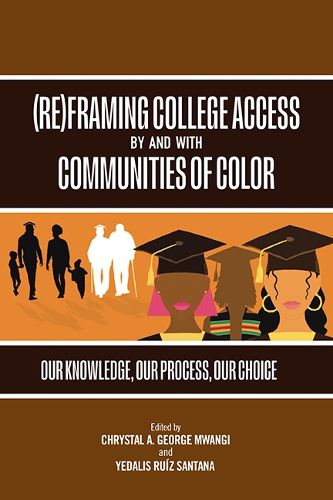Readings Newsletter
Become a Readings Member to make your shopping experience even easier.
Sign in or sign up for free!
You’re not far away from qualifying for FREE standard shipping within Australia
You’ve qualified for FREE standard shipping within Australia
The cart is loading…






Offers novel frameworks and models for understanding college access and choice among communities of Color.
This much-needed volume brings together academics, practitioners, students, and community members of Color to thoroughly reframe college access and choice in research and practice. Enrollment rates continue to differ substantially by race and ethnicity. While Black, Indigenous, and other People of Color remain inequitably stratified in the pursuit of higher education, many models of college choice are simply insufficient for understanding the college-going processes of diverse students. Continually centering BIPOC knowledge, assets, and needs, contributors provide a series of varied yet connected frameworks grounded in culturally sustaining, community-oriented research. Like the educational journeys it represents, the volume is a communal activity that invites participation. Each chapter concludes with a series of critical reflection questions to guide readers in deeper learning and engagement.
$9.00 standard shipping within Australia
FREE standard shipping within Australia for orders over $100.00
Express & International shipping calculated at checkout
Offers novel frameworks and models for understanding college access and choice among communities of Color.
This much-needed volume brings together academics, practitioners, students, and community members of Color to thoroughly reframe college access and choice in research and practice. Enrollment rates continue to differ substantially by race and ethnicity. While Black, Indigenous, and other People of Color remain inequitably stratified in the pursuit of higher education, many models of college choice are simply insufficient for understanding the college-going processes of diverse students. Continually centering BIPOC knowledge, assets, and needs, contributors provide a series of varied yet connected frameworks grounded in culturally sustaining, community-oriented research. Like the educational journeys it represents, the volume is a communal activity that invites participation. Each chapter concludes with a series of critical reflection questions to guide readers in deeper learning and engagement.